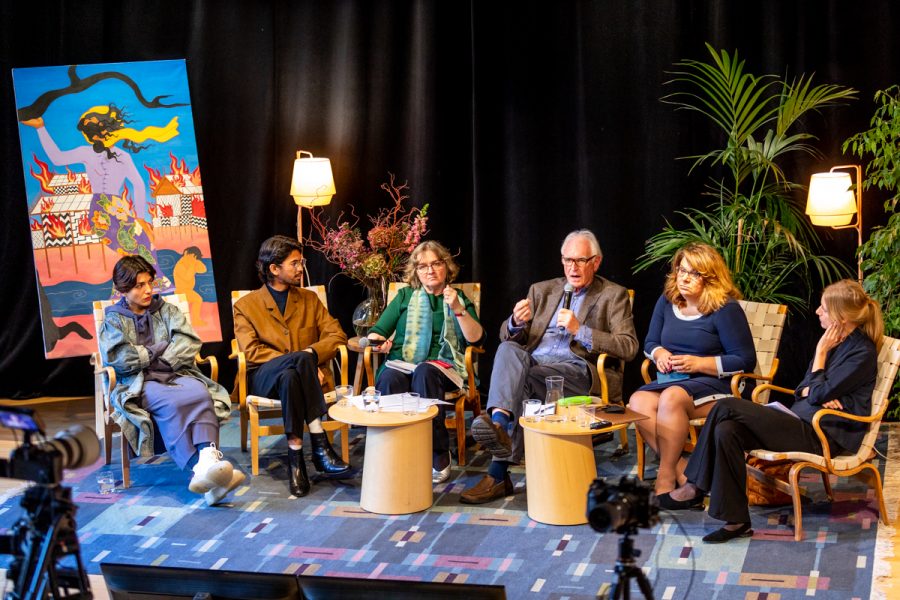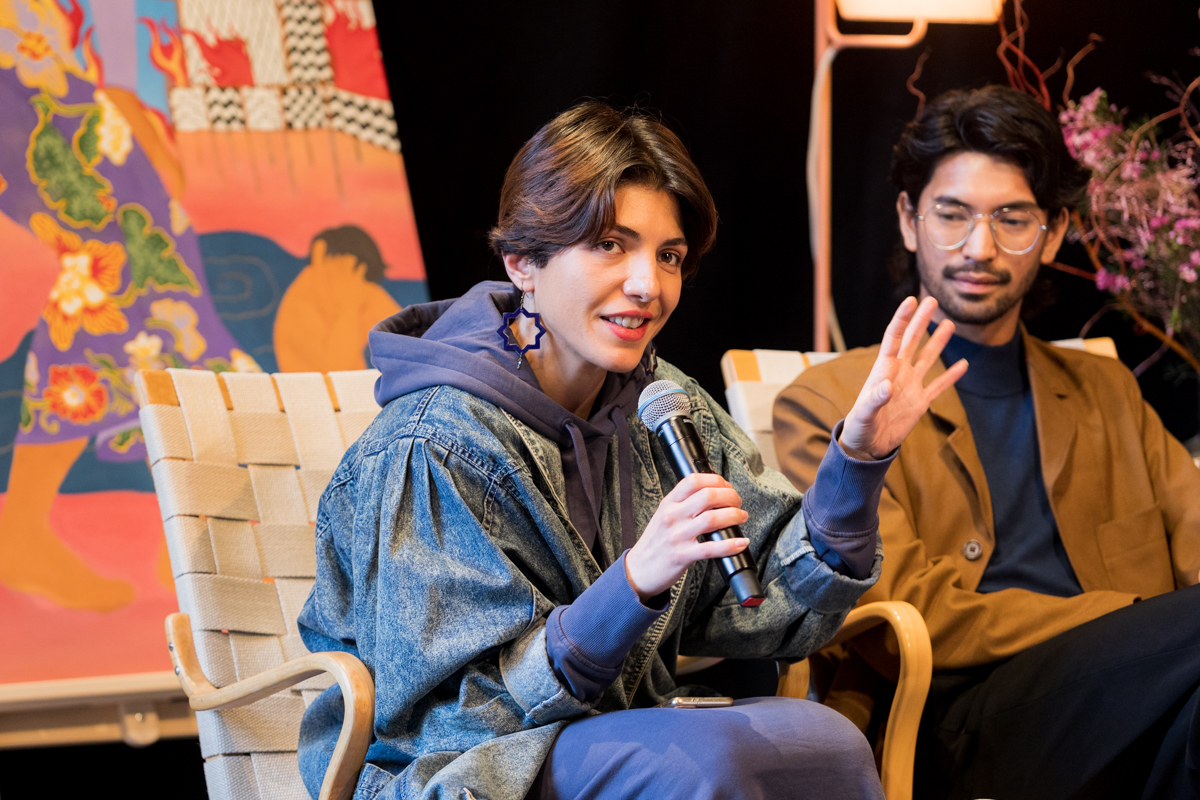They both took part in the seminar on Artistic freedom that the Swedish Institute and EUNIC organized at Institut Suédois in Paris, 22 Nov. Key note speaker was Professor Alexandra Xenthaki, the newly installed UN Special Rapporteur in the field of Cultural Rights. One of her priorities will be minorities’, immigrants’ and disabled persons’ right to culture.
Cultural rights are fundamental for the respect of human dignity and one of the cornerstones of a vital democracy. People must be able to participate in the circulation of opinions, ideas, and artistic expression throughout the world whether or not this legitimates a particular nation state. However, violations of cultural rights occur constantly but what we see and measure is just the top of the iceberg said Ole Reitov, International expert in artistic freedom.

Karin Hansson, Swedish representative of International Cities of Refuge Network (ICORN) explained how the network has created safe havens for artists at risk, Justina being Today ICORN operates in Scandinavia, Europe, North America and Latin America, with the majority of cities based in Sweden and Norway.
Culture is interdisciplinary. Madeleine Sjöstedt, Director-General of the Swedish Institute, conveyed how freedom of speech and artistic freedom is not only immersed in the Swedish society – Sweden being the first country in the world to write freedom of the press into its constitution in 1766 – but also permeate the Swedish Institute’s different activities.
